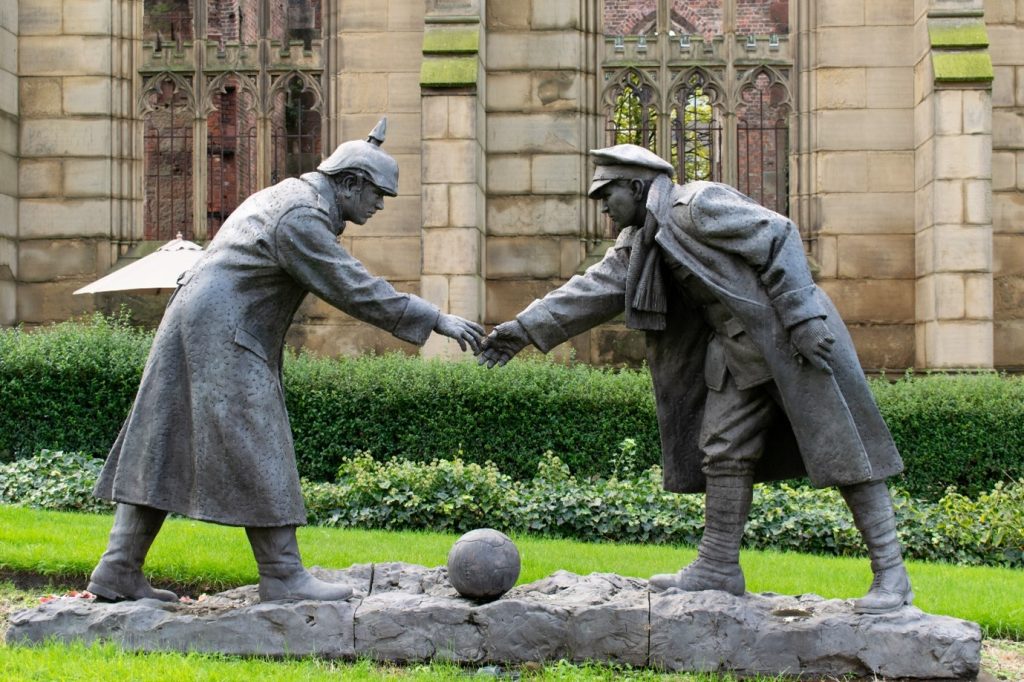I once visited the World War One battlefields in France. It was moving to see the fields of crosses that stretched far into the distance. More surprising was a visit to the trenches. The German trenches were so close to the British ones that a decent cricketer could easily hit the stumps on the other side. But both sides were dug in deep and just kept lobbing bullets and artillery across the gap at each other, until they had fought to a standstill.
The latest research from the Edelman Trust Barometer 2023 shows that, one hundred years later, our world is just as polarised as the adversaries in the WW1 trenches. Trust in government and media is plummeting and a failure of leadership has created a polarised and distrustful world. Business is now seen as the only institution that is both competent and ethical and is under pressure to fill the void left by government.
There are 3 key implications for corporate- NFP partnerships.
The competency gap in non-profits
The Edelman report showed that economic optimism is collapsing, and people fear that their families will be worse off in five years. The need for social change is acute, but non-profits are viewed as less competent than business to deliver on that change. If you’re a non-profit CEO, how much did you invest last year in learning, development and skills? Was it meaningful or just an afterthought, like the loose change that people put into the church plate? Non-profit teams have worked harder in the last few years than ever before and are being asked to do more with less. Equally, the CEOS and leaders of non-profits need to shift their skills to respond to the changing environment. Many leaders are specialists, with deep expertise in things like health research, mental health, childhood development. What’s needed in the current landscape is a mix of commercial nous, strategic thinking and relationship management. Non-profits need to improve their overall competency to achieve the ambitious change that the community demands. They need corporate help and access to the expertise, networks, resources and innovation that come with strategic partnerships. If non-profits don’t build their competency, then society will lose trust in the sector and corporates will leave them behind.
The role of the corporate CEO
It’s not often that I feel sorry for business CEOs, but there is now an enormous expectation of the role they have to fulfil in society. The Edelman report shows that business leaders are expected to take a public stand on important issues, such as treatment of employees, climate change, discrimination, the wealth gap and immigration. To maintain their trusted position with the public, corporate CEOS need to provide trustworthy and credible information. That’s where they need the help of non-profits, who provide objective, evidence based or scientifically rigorous research to inform decisions. 72% of people expect CEOs to defend facts and expose questionable science, whilst 74% want them to pull advertising from media platforms that spread disinformation. Combining the networks and resources of corporates with the expertise of non-profits is the only way to meet expectations.
Societal pressures on business
Business now wears the mantle of greater responsibility and expectation as the most trusted institution. The risk to business is higher than ever. 69% of people said that societal impact was a deal breaker when considering a job. Business has to demonstrate real social outcomes if it wants to compete for talent in a tight labour market. Consumers and employees are pressuring business to stand up for them and they want more societal engagement, not less. At the same time, political polarisation in the USA is causing a backlash to companies committed to ESG. The right wing is advocating disinvestment at the same time as the rest of the world is moving to embed ESG in legislation. It’s a balancing act that corporates can’t achieve by themselves. Achieving their ESG targets and meeting societal expectations can only be met by meaningful partnerships with the community sector.
The time for partnerships has never been more urgent. Partnerships can build consensus and hold back the tide of distrust and polarisation. This is not the time to dig ourselves deeper into our trenches, like WW1. Neither corporates nor non-profits have all the answers by themselves, but together they can achieve a more just, equal and thriving world.

